A good and a bad news
Adelina Marini, February 2, 2011
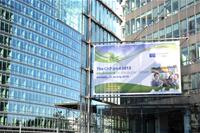 As the tradition prescribes, we will start with the good news. On January 31st a series of public discussions has been launched which will take place all over the country on the formulation of a single Bulgarian national position on the reform of the Common Agricultural Policy, based upon European Commission's Communication published in the end of last year. This is good news because it is high time Bulgaria to realise that it is a member of the European Union and that, again, the time has come for the negotiations on the new multiannual financial framework, on which depends which member state what share of the European subsidies will get in the next decade, and for what.
As the tradition prescribes, we will start with the good news. On January 31st a series of public discussions has been launched which will take place all over the country on the formulation of a single Bulgarian national position on the reform of the Common Agricultural Policy, based upon European Commission's Communication published in the end of last year. This is good news because it is high time Bulgaria to realise that it is a member of the European Union and that, again, the time has come for the negotiations on the new multiannual financial framework, on which depends which member state what share of the European subsidies will get in the next decade, and for what.
Not one or two Bulgarian governments stated that agriculture was a strategic sector in the Bulgarian economy, although a rapid walk around the market places for fruits and vegetables would show something different. No less sad will prove to be the situation on the market of meat, for milk and milk products.
One of the main problems in the negotiations that are yet to start this year, however, is that Bulgaria cannot ask for more than it is written in its Accession Treaty.
The bad news
And here comes the bad news. Bulgaria, as well as several other new member states, is protesting against the unfair distribution of subsidies under the CAP - the old member states receive much higher subsidies (several times higher) than the new member states. This is the reason why the Bulgarian MEP from the majority group in the European Parliament (EPP, GERB) Mariya Nedelcheva (a member of the 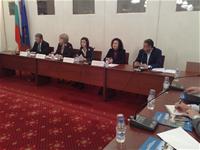 Agriculture and Rural Development Committee in the EP) has initiated a written declaration for fairer distribution of agriculture subsidies among the new and old member states.
Agriculture and Rural Development Committee in the EP) has initiated a written declaration for fairer distribution of agriculture subsidies among the new and old member states.
Asked by euinside what "fairer" meant she explained that currently the Bulgarian farmers got around 40% of what the farmers in the old member states received. This distribution of subsidies is based on the so called "historical approach", which should no longer be applied, Mariya Nedelcheva added and called for a new definition of the criteria according to which there would not be so "frapant differences" in the subsidies member states receive.
She mentioned also that 9 of the 18 Bulgarian representatives in the European Parliament had still not signed the declaration which would expire on March 24th, 2011 and which had to gather 369 signatures in order to come out on behalf of the institution. euinside asked some of the nine MEPs, mentioned by Ms Nedelcheva (Ivaylo Kalfin, Iliana Yotova, Stanimir Ilchev, Nadezhda Neynsky). Mr Neynsky argued that, in fact, she had signed the declaration in the very beginning, yet in Strasbourg.
 In his response the leader of the delegation of the Bulgarian socialists to the European Parliament and former foreign minister, Ivaylo Kalfin, says that the procedure for signing the document is still not over yet. Although he has reserves Mr Kalfin assures that he will sign it but he points out several questions regarding the usefulness of the document: "The conditions and the size of the direct payments for farmers are set in the Accession Treaty of Bulgaria. Any change of the Treaty is not in the competences of the European Parliament. The Parliament has other instruments to influence on the removal of the disparity, which are inscribed in its powers. For example, via a budgetary procedure it could be asked for additional compensation for the farmers in the new member states".
In his response the leader of the delegation of the Bulgarian socialists to the European Parliament and former foreign minister, Ivaylo Kalfin, says that the procedure for signing the document is still not over yet. Although he has reserves Mr Kalfin assures that he will sign it but he points out several questions regarding the usefulness of the document: "The conditions and the size of the direct payments for farmers are set in the Accession Treaty of Bulgaria. Any change of the Treaty is not in the competences of the European Parliament. The Parliament has other instruments to influence on the removal of the disparity, which are inscribed in its powers. For example, via a budgetary procedure it could be asked for additional compensation for the farmers in the new member states".
Ivaylo Kalfin also points out in his response to euinside that so far the draft declaration has been signed by 59 MEPs and, in order for it to be approved, at least 368 signatures are required. According to him, raising the issue in Parliament with such a text should be done only if there is a specific certainty that it would be successful. A possible rejection of the draft will be a sign on the opposite direction than that the initiators aim at.
Ms Yotova's response was in the same spirit, although there was something else in it - a signal of tension among the Bulgarian MEPs from the various political groups. This was evident especially during the press conference on the launch of the indeed good idea for a national debate on the interests our country has to defend during the debates on the reform of the largest community policy - the CAP. Only representatives of the ruling (GERB) party attended the press conference.
It was mentioned several times that since the beginning of GERB's government in 2009, Bulgaria had defended a single position both in the Council and the European Parliament. To euinside's question whether the national position would be discussed with the rest of the political parties in Bulgaria, Mariya Nedelcheva said:
"My written declaration even in the European Parliament did not happen without being discussed in advance with all political groups that represent Bulgaria in that institution. What I insist upon is actions to support words. Because in words 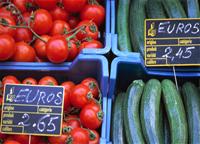 we have the support but it is good if we prove it in reality".
we have the support but it is good if we prove it in reality".
In article 84 of the Accession Treaty of Bulgaria there are several formulae to calculate the subsidies per unit of area. For example, Bulgaria receives subsidies by a ceiling, defined via the multiplication of the number of hectares in its National Guaranteed Areas (NGA) by the amount of 120.75 euro. The maximum NGA, as written in the Treaty, is 829 229 hectares. There are many other conditions set in the various enclosures of the Treaty.
And another bad news, but on another issue
The event, at which Mariya Nedelcheva gave the start of the public debates in the entire country, was held in the building of the National Assembly. We, the media, learned about this event from the GERB party, who are also co-organisers of the event. In the invitation it was explicitly written that the admission of journalists in the building (which otherwise happens after an early accreditation) would be done by only presenting a press card. euinside has a long experience with the discrepancies between the information the state institutions' press centres give and reality, which was why we were prepared for a long battle.
Unfortunately our expectations proved to be right 100%. Yet with the very entering in the building the security guards demonstrated to us that they had no information of a change of the rules; their behaviour was quite impolite for security guards of a public institution in which the representatives of the citizens work, paid by the taxpayers; and also there was no representative of the press centre who could have helped to solve the dispute in time. I will not tell you in details about the rude attitude, as well as about the ridiculous explanation that the extremely hi-tech door of the National Assembly could not be held open for people without e-accreditations.
I would only say that, after all the situation developed the way it was meant to in the very beginning - all of us who were dragged here and there in the cold weather, were allowed to enter the building without the sacred e-accreditations. Which was logical because at such an event, which is not in the Parliament's agenda, usually those journalists are sent who are aware of the topic and have no permanent accreditations. And it is a matter of organisation and coordination. Furthermore, the press centre of the GERB party denied having sent such an invitation, but we keep it.
And although everyone was assuring that there was no problem and that all journalists would be allowed to enter, the conclusion was that some of us, for whom time was precious and the event important, lost half an hour and a lot of nerves. And what was more funny was that most colleagues were there only for the announced participation of Prime Minister Boyko Borissov. After the entire pain with the access into the building, the colleagues learned minutes later that the PM would not attend the press conference, which led to a phenomenal reflux of media interest.
I am telling you all this, if anything, for the fact that it shows again the symptoms of a very dangerous disease which is being fought against in several countries around the world now - the rupture of the link between power and its real employers - the citizens. The citizens who everyday endure the decisions, actions or inactions of those whose salaries they pay with their taxes.
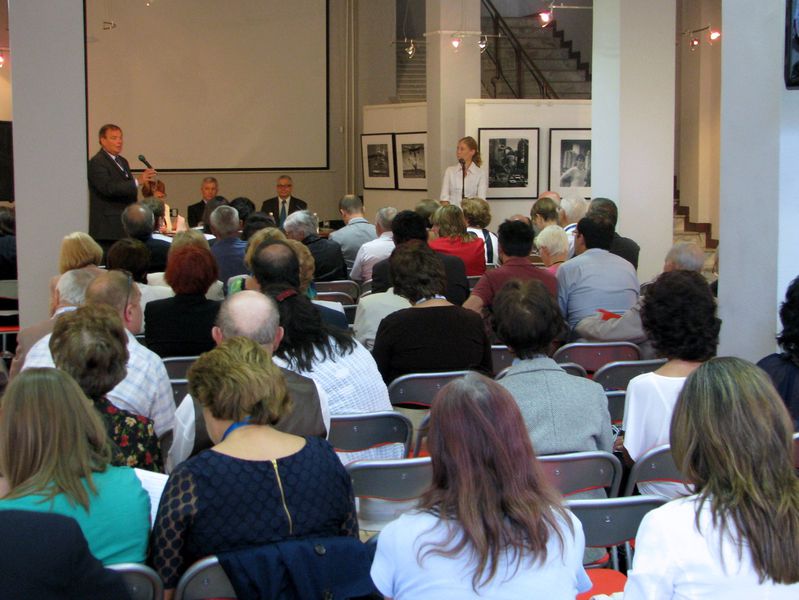 | © Polish Embassy in Sofia
| © Polish Embassy in Sofia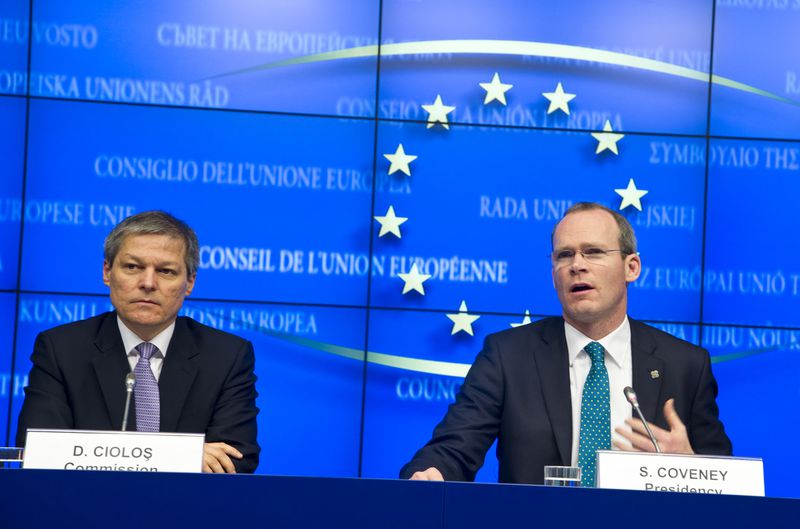 | © Council of the EU
| © Council of the EU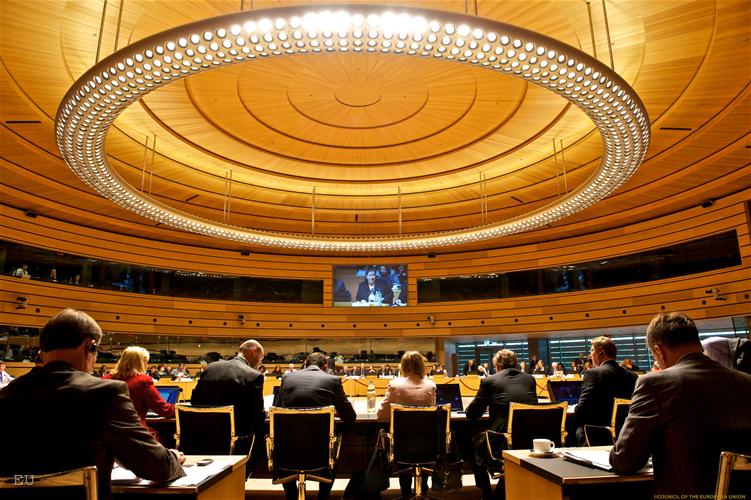 | © EU
| © EU